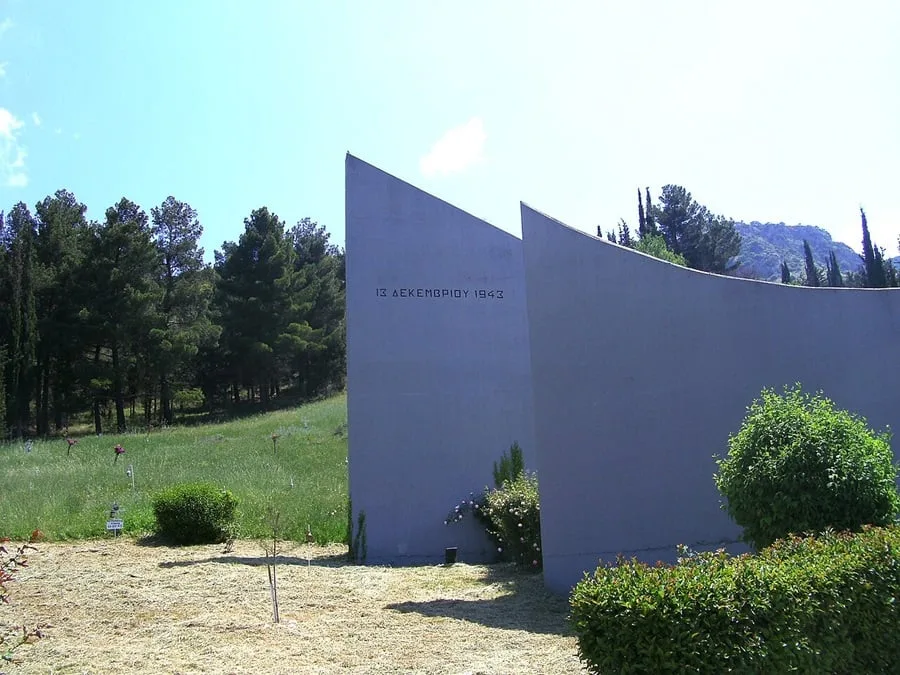
Greece insisted on WWII reparations from Germany on the anniversary of the Kalavryta massacre by Nazi forces which is regarded as the bloodiest atrocity in the country.
Defense Minister Nikos Dendias speaking at Kalavryta the 80th anniversary of the massacre said reparations from Germany remain “absolutely open” for the Greek government.
“Regarding the issue of German reparations, I want to clarify something that I have repeatedly said in my previous capacity as the country’s foreign minister. The question for the Greek government remains absolutely open,” he said.
Greece is seeking more than $300 billion for damage incurred by occupying Nazi Germans during World War II. This figure is based on the country’s material losses during the war, including the destruction of infrastructure, the loss of property, and the death of over 300,000 civilians.
Greece’s claims were formally renewed in 2019 under the previous SYRIZA left-wing government. The current conservative administration, while not publicly pressing Berlin, has said it considers the issue unresolved.
Earlier this year the President of Greece Katerina Sakellaropoulou raised the issue of war reparations during her visit to Germany.
At her meeting with her German counterpart, Frank-Walter Steinmeier, she stressed “the utmost importance of the issue of war reparations and the occupation loan.”
She added that a dialogue on the issue “will be to the benefit of both countries and the resolution of past disputes will help strengthen bilateral cooperation for the future.”
Germany has consistently rejected Greece’s claims for war reparations. The German government argues that the matter of reparations was settled after World War II, and that Greece has already received ample compensation through various international agreements and bilateral agreements with Germany.
War reparations from Germany and the Kalavryta massacre
On December 13, 1943, German troops shot almost 700 male villagers aged 14 and over (13 survived) and burned the town to the ground, as a reprisal for the execution of 79 German soldiers taken prisoner by resistance fighters six days earlier.
“Operation Kalavryta,” or “Unternehmen Kalavryta,” was a typical German act of retaliation in areas where there was heavy guerrilla activity. It was directed against the civilian population of the region and was one of the most barbarous carried out by the Wehrmacht—not only in Greece but in all of Europe.
The massacre was memorialized in the 2014 book, Hitler’s Orphan: Demetri of Kalavryta, by Marc Zirogiannis. This historical novella tells the story of the massacre from the perspective of the Zirogiannis family.
In April 2000, then-President of the Federal Republic of Germany, Johannes Rau, visited the memorial site in Kalavryta and expressed shame and sorrow for the tragedy.
A museum dedicated to the Kalavryta Holocaust is now open in the former elementary school in Kalavryta, Greece where the Nazis first separated the men from the women and children.
Related: Movie with “Nazi Saving Children” Scene Outrages Greece’s Kalavryta

